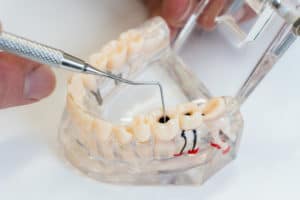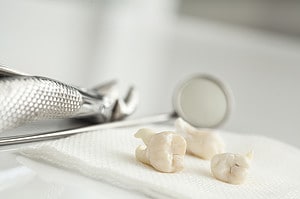Many people fear root canals due to the potential for post-procedure pain. Fortunately, with modern advancements in pain management, there are a variety of ways to reduce or eliminate pain following a root canal.
This article will discuss managing pain after a root canal and provide tips for post-procedure care. It will also discuss medication options and when seeking further medical attention is necessary.
Understanding Root Canal Pain
Root canal pain is a common symptom of endodontic treatment. It can range from moderate to severe pain, and can also be persistent, lasting days or even weeks. It is important to understand that this pain is a natural part of the healing process and is not an indication of any further complications.
Pain medication and other forms of relief, such as an ice pack or warm water with a teaspoon of salt, can help reduce the discomfort. For more severe cases, an anti-inflammatory medication may be prescribed. It is important to discuss the best treatment options with a doctor or dentist before using any form of medication.
Taking the necessary steps to understand root canal pain can help alleviate any anxiety or fear associated with the treatment.
Managing Your Pain Symptoms
Following a root canal, managing pain symptoms is essential. By employing endodontic treatments, a patient can alleviate discomfort following a dental procedure. These treatments are designed to eliminate any infection in the root canal, as well as reduce pain after the root canal:
- Mild Pain: The use of mild pain medications such as ibuprofen or acetaminophen can help reduce discomfort after treatment
- Surgical Procedure: In more severe cases, a surgical procedure may be necessary in order to fully remove an infected or diseased pulp.
By understanding the various treatments available, a patient can make the best decision for their own pain management needs.
Root canal treatments are a safe and effective way to alleviate pain after a dental procedure. With the right care and attention, a patient can manage their symptoms and find relief.
Understanding Your Medication Options
Medication is an important part of managing pain after a root canal procedure. When undergoing root canals or root canal therapy, a dental professional will carefully remove the diseased or infected tissue from the tooth root. This can cause significant discomfort and result in sensitive teeth. A dental professional may prescribe an antibiotic and a counter-pain medication to ensure optimal relief after the procedure.
In order to obtain the desired pain relief, it is essential to follow the directions provided by the dental office. The patient may suffer from persistent pain if the prescribed medications are not taken according to the instructions. It is also important to note that the medications will take time to take effect, so it is important to be patient.
In addition to taking medication, there are a few additional steps that can be taken to reduce the pain. Placing extra pillows under the head and neck can help to reduce the throbbing sensation. Applying a cold compress to the affected area can also help to soothe the ache.
Prescription Pain Medication
Prescription pain medication is often recommended to reduce discomfort after a root canal procedure. The goal of this medication is to provide relief from pain and to help prevent bacterial infections and future infections. Depending on the severity of the pulp tissue damage, the medication can help reduce mild, moderate, and severe discomfort.
Pain medication helps reduce inflammation that can lead to bacterial infection in the tooth and tissue.
Cold food and beverages can help to provide relief from pain.
Taking pain medications as prescribed can help reduce the risk of future infections.
Dental crowns can help protect the tooth from further bacterial infection and restore the existing tooth to its full function.
When to Seek Further Medical Attention
If the symptoms of discomfort after a root canal procedure persist or worsen, it is important to seek further medical attention. Post-endodontic flare-up pain can be a result of various reasons, such as a natural tooth that was not completely sealed during the root canal surgery, infection of the gum tissue as a result of the procedure, or a fractured tooth that may have gone unnoticed during the procedure. In some cases, a patient may experience more intense pain than expected following the procedure.
Warm salt water rinses can be used to reduce the inflammation and discomfort associated with root canal surgery, but if the pain becomes too severe, it is important to seek additional medical attention.
Oral health is an important part of overall health, and the successful placement of dental implants, for example, is dependent on the successful completion of the root canal procedure. Severe root canal pain can indicate an underlying issue that needs to be addressed, and it is best to take immediate action to mitigate potential complications. Consulting with a dentist to assess the issue and determine the best course of action is recommended to ensure continued oral health and well-being.
Post-Root Canal Care Tips
Following a root canal procedure, it is important to take steps to ensure proper care of the affected area to reduce recovery time and potential risk of complications. Generally, a temporary filling is placed in the tooth after the procedure, followed by a permanent restoration such as a crown.
After the procedure, it is important to be aware of dental health awareness and any dental concerns. To ensure the best results, it is recommended to follow the care instructions provided by the experienced and highly-trusted dentist. These may include:
- Cleaning the affected area with warm salt water or a mild antiseptic mouthwash to help reduce the risk of infection.
- Avoiding cold substances, such as ice cream or popsicles, as they can cause discomfort from root canal.
- Refraining from chewing on the affected side until the permanent crown is placed.
- Taking counter medications, if prescribed, to reduce any abnormal pain or foul taste.
It is normal to feel some discomfort after a root canal, and if the pain persists, an emergent appointment may be necessary. Additionally, if any extreme pain, constant pain, jaw pain, ghost pain, or acute post-endodontic pain is experienced, it is important to seek additional treatment from the dentist.
Modern technology provides comprehensive care, so it is important to consult a dental professional to determine the best course of action for dental health.
Key Takeaways
Root canal treatment can be painful and uncomfortable, but with the right care and medication, the ache can be soothed.
The key to managing pain is to take the recommended medication, follow post-treatment care guidelines, and be aware of the signs of an infection.
With a combination of rest, relaxation, and the right medical treatment, the throbbing pain can be relieved, and the healing process can begin.
Imagining a calm and peaceful setting can also help, allowing the patient to relax and focus on a speedy recovery.
If you are looking for a reliable and experienced dental practice to help you with a root canal treatment, please visit Aspendale Garden Dental Care in Aspendale, VIC. Our team of experienced dentists in Aspendale who have a wealth of knowledge in all areas of dentistry, you can rest assured that you will be in the best of hands. All treatments are tailored to suit the individual needs of each patient, ensuring the highest standard of care. Contact us today to book an appointment or learn more information.











